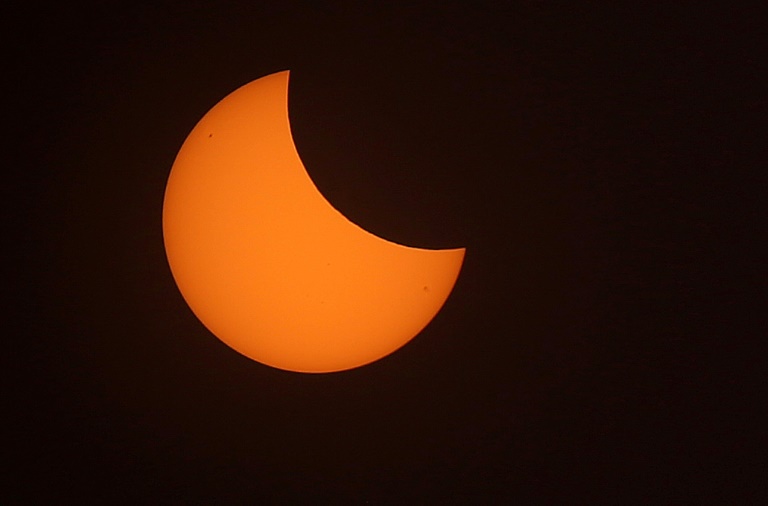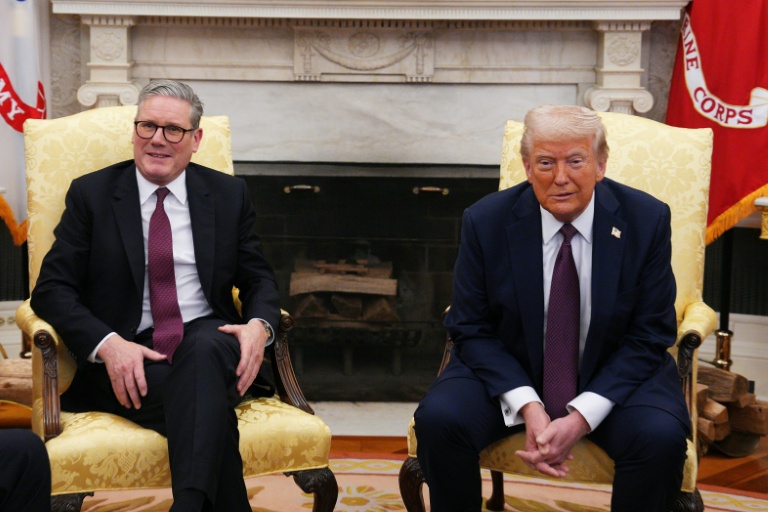Old-fashioned, slow, infrequent and often non-existent, trains have long been the poor relation of cars and planes in the United States. President Joe Biden’s administration is hoping to change that as it unveils major rail investments on Friday including the United States’ first high-speed train — between Los Angeles and Las Vegas — which it aims to complete by 2028.
The move is part of a larger ambition to double passenger numbers on America’s railways by 2040. “This is a country that wouldn’t be the country it is today without railroads,” said Transportation Secretary Pete Buttigieg, noting that the United States now lags “behind other nations when it comes to passenger rail.”
Major rail projects are part of the infrastructure investment plan that Biden pushed through shortly after taking office, which allocated $66 billion for passenger trains. This is the largest sum allocated to passenger rail since the formation of Amtrak in 1971. The quasi-public company was set up to relieve private freight of the burden of passenger transport, and now operates inter-city rail lines across the country.
The aim of the additional financing is to usher in a “new era of passenger rail,” Laura Mason, Amtrak’s executive vice-president in charge of the renovation work, told AFP. “This will be truly transformational for US passenger rail,” she said, adding that much of today’s network runs on infrastructure “built well over 100 years ago.”
Dozens of projects will benefit from the new funding, from the creation of new lines to the extension of existing ones. In addition to the Los Angeles-Las Vegas line, another between San Francisco and Los Angeles is in the works, with each to receive up to approximately $3 billion. The frequency of services will also be boosted, while ageing stations will be renovated, and new, faster and more comfortable trains are planned.
For instance, the shuttered line connecting the city of New Orleans, Louisiana with Mobile, Alabama is due to reopen almost 20 years after it was destroyed by Hurricane Katrina. And the Amtrak station in Baltimore, Maryland, is being refurbished to accommodate more trains, and a new tunnel will be dug nearby to increase traffic speed.
– ‘Skeletal’ network –
The train played a crucial role in expansion across the western United States in the 19th century, but today’s network is “skeletal,” Jim Mathews, the head of the US Rail Passengers Association, told AFP. As a result, “there are a lot of trips that are just not possible,” he said.
A journey in the northeast between Boston, New York and Washington, “would be a relatively painless experience,” he explained. “It would be slower than it should be (but) that’s going to get better soon,” he said, adding that new trains and upgraded infrastructure will soon help speed up journey times.
On the other hand, crossing the country from east to west takes between two and two-and-a-half days. “You’ll have to change trains in Chicago,” Mathews said. “And if you want a sleeping compartment, you have to book that months in advance.”
It’s not just a question of repairing train tracks and building new trains, but also “changing how people move, and how do we encourage mode shift out of cars, out of airplanes, onto trains,” said Mason from Amtrak.
– Amtrak Joe –
Despite the challenges, the current context is a favorable one for train travel, Mason insisted. “We’re seeing a real change coming out of pandemic and how people want to move,” she said, adding that passenger numbers were growing. Some were doing it for environmental concerns, while others chose train travel for its tranquility, convenience for work because of Wi-Fi, or simply “for the experience,” she added.
In the waiting area at Washington’s Union Station, Alan Beaubien, who lives in Florida, was in town on a business trip. “Once I’m in the northeast, I will always use the train,” he told AFP. But “when you get into more the Midwest or the West, you don’t have as many options,” he said.
Chukwuemeka Chuks-Okeke is another loyal Amtrak user. “There’s obviously no traffic, and I enjoy taking the train. It’s relaxing,” he told AFP at Union Station. “We could do a better job at reducing our carbon footprint and by taking trains.”
Last month Biden, who used the train between his Delaware home and Washington so much as a US senator that he earned the nickname “Amtrak Joe,” insisted that the $66 billion in funding was just the “beginning.” “There’s so much more we can do,” he said. “You can go and get a train in China, go to 210 miles an hour,” he added, nodding to the progress made in high-speed rail by the world’s second-largest economy. “We can do it here in the United States.” – Julie CHABANAS




